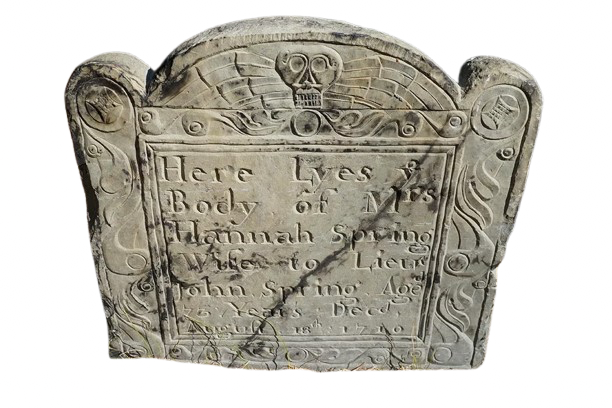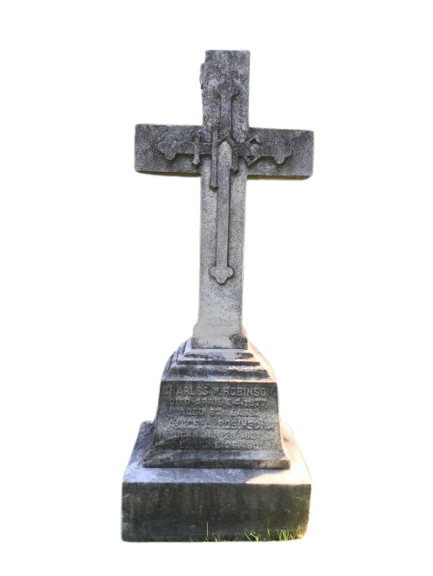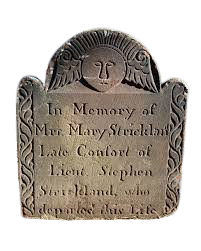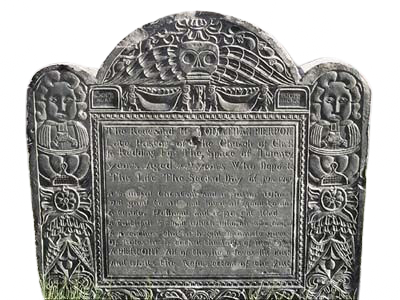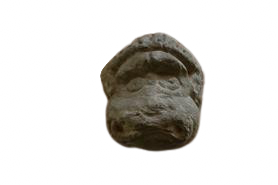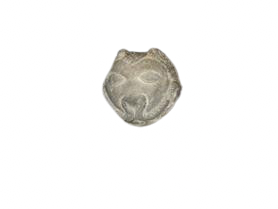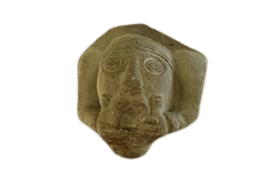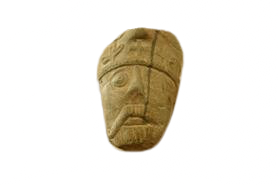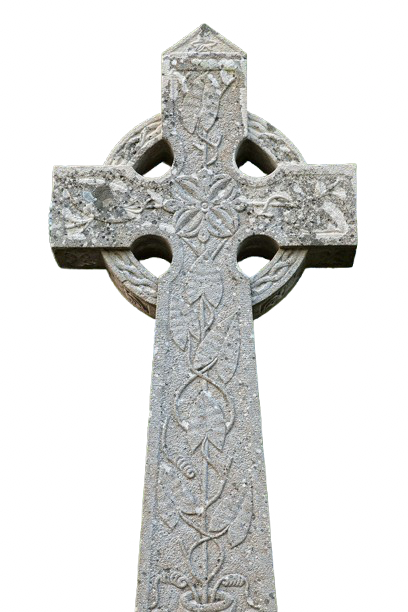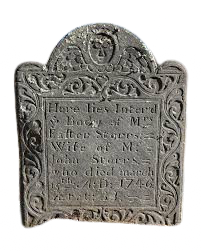go back

What Happens Underground
Church structure is significant to Tess of the d’Urbervilles because of the cross’s significance as both a symbol for suffering and salvation. Further, being nailed to a cross is a penetrative killing, where the more one writhes to escape their death, the deeper the nails are driven into their flesh. Much of Tess’s suffering is of a similar manner to this crucifixion, where she tries to escape a damning situation only to be found in a situation much worse. Many christian sects believe Christ’s crucifixion to be a moment of his own damnation, where he is separated from God in order to save humanity. Hardy’s hero, however, doesn’t die to save anyone, adding to the impact of the novel’s point of the meaningless suffering the Church subjected women to.

The Deaths seen in Tess
While some may fixate on how the story’s mood is tainted by these unfortunate deaths in her life, these deaths are what brings about the core thematics of Tess’s story, where her lack of agency in Victorian England is what damns her to eternal suffering under Christian doctrine.
Death occurs in increasingly significant ways in Tess of the d’Urbervilles, first occurring in the family horse, Prince’s death, growing in severity in Tess’s child, Sorrow’s death, again worsening through Tess’s father, Jack Durbeyfield’s death, and ultimately ending in Tess’s own death. All of these deaths point towards the topic of Tess’s damnation within the novel, describing how her damnation isn’t through any of her actions, but the actions and suffering of those around her.

Prince’s Death
“For that which befalleth the sons of men befalleth beasts; even one thing befalleth them: as the one dieth, so dieth the other; yea, they have all one breath; so that a man hath no preeminence above a beast: for all is vanity” (Ecclesiastes 3:19 KJV).
The first death in the novel, as well as the catalyst for the suffering that is to come, is found as early as chapter 4, with the death of the Durbeyfields’ working horse, Prince. “Prince also stood firm and motionless as long as he could; till he suddenly sank down in a heap.” (Hardy 40). In response to this death, Tess exclaims how Prince’s killing is “all my doing—all mine!” (40), further lamenting that there is “[n]o excuse for me—none” (41). This dialogue serves as an early glimpse into Tess’s understanding of her own suffering as a consequence to her own actions. Here, she doesn’t dare to look past her own actions to understand why she is suffering, remembering how her father was too drunk to do the job he himself was responsible for doing.
“‘Tis because we be on a blighted star, and not a sound one, isn’t it, Tess?” murmured Abraham through his tears (Hardy 41)
Even Abraham doesn’t fault Tess for Prince’s death, stating that the brokenness of the world is responsible for humanity’s suffering, a Pagan claim which contrasts Tess’s internalized Christian values.
According to Sinan Akilli, opposing how many readers may have interpreted Prince’s presence within the novel, he is not only an integral aspect of the Durbeyfield’s livelihood but an important family member. Through his death, Hardy is dismantling the Christian perspective of humanity being separate and distinct from other, nonhuman animals, ultimately arguing the Pagan belief that human and nature are closely connected. Therefore, while this death might not as easily be seen under the lens of Christian Damnation, the scene arguably serves as a clear example as to Tess’s liminality between Paganism and Christianity; Tess is both sorry for having lost her family’s workhorse, as well as having lost a family member.

Sorrow’s Death
“Unto the woman he said, I will greatly multiply thy sorrow and thy conception; in sorrow thou shalt bring forth children; and thy desire shall be to thy husband, and he shall rule over thee” (Genesis 3:16 KJV)
Reflecting on Sorrow’s death, Hardy writes, “Poor Sorrow’s campaign against sin, the world, and the devil was doomed to be of limited brilliancy—luckily perhaps for himself, considering his beginnings” (Hardy 113).
Tess’s child’s life is described as a “campaign against sin, the world, and the devil”, revealing Tess’s understanding of the world and life through the Christian ideal of having one’s life exist to counteract the evil of the world. Hardy’s choice to include “the world” in Sorrow’s nonexistent battle against evil possibly reflects the Christian understanding of the world as an intrinsically evil place, contrasting the Pagan and Darwinian belief that the world exists outside of any essential morality. Tess’s view of Earth exists in a battle between her Pagan family tradition and her Victorian (and Anglican) school teaching. Here, in one of Tess’s darkest moments, she returns to Christianity. Hardy’s choice to represent Sorrow’s inability to live in this manner as “doomed” also borrows terminology from Christianity, a term closely related to “damned”. Further, the passage concludes with an acknowledgement that perhaps Sorrow would not be given the agency to accomplish the Christian ideal of life “considering his beginnings”, articulating how illegitimacy in Chriastian culture is a damnation of its own, incapacitating Sorrow from existing as an equal to his Christian Victorian peers.
Even in life, Sorrow represented a great emotional burden to Tess. According to Richard Franklin , “[e]vangelicals placed great emphasis on marriage and family life, attitudes which permeated Victorian society as a whole” (Franklin 38). This deviation from the Victorian Evangelical standard of married family life, Tess’s child represents a failure for her to follow this form and live up to this standard. Thus, Sorrow represents a core aspect of Tess’s damnation, where she is forced to fail both as a woman and a Christian.

Sir John’s (Jack Durbeyfield) Death
“The Lord is longsuffering, and of great mercy, forgiving iniquity and transgression, and by no means clearing the guilty, visiting the iniquity of the fathers upon the children unto the third and fourth generation” (Numbers 14:18 KJV).
Following Jack Durbeyfield's death, the narrator reflects: “Thus the Durbeyfields, once d’Urbervilles, saw descending upon them the destiny which, no doubt, when they were among the Olympians of the county, they had caused to descend many a time, and severely enough, upon the heads of such landless ones as they themselves were now.” (Hardy 397-398)
This passage touches upon the concept of Generational sin: that God “visit[s] the iniquity of the fathers upon the children, and upon the children's children, unto the third and to the fourth generation” (Exodus 34:6, KJV). Again, the Durbeyfields’—and, by extension, Tess’s—suffering is attributed to something which lies completely outside of their control: the exploitation caused by their ancestors.
>
According to psychiatrist Timothy Rivinus, “Tess Durbeyfield… [is] the child of an alcoholic (COA)” (Rivinus 238). This is informed by Hardy’s extensive interactions with alcoholics all throughout his life, including “his mother’s brothers” (238). Further, both of his grandfathers were alcoholics, likely serving as models for the character of John Durbeyfield. Throughout the novel’s story, Tess’s suffering is exacerbated by her father’s actions, like in the instance of Prince’s death. But it is his absence that hurts her the most. As his name was on the family’s house’s lease. Soon after he died, the remaining Durbeyfield family was ejected from their house and forced to find shelter at Kingsbere, leading Tess to seek the help of Alec d’Urberville once again, mirroring the tragedy of Prince’s death.

Tess’s Death
“But if he thrust him of hatred, or hurl at him by laying of wait, that he die; Or in enmity smite him with his hand, that he die: he that smote him shall surely be put to death; for he is a murderer: the revenger of blood shall slay the murderer, when he meeteth him” (Numbers 35:20-12 KJV).
At the end of the novel, Tess herself is executed by hanging, being convicted of the murder of Alec d’Urberville. Ultimately, while her death was done to her by the country of England, this can be seen as her final act of agency. According to Rivinus “by murdering [Alec], and by being publicly hanged in the name of justice for the act, she chooses an ironic revenge” (Rivinus 256-257). In the end, the only viable choice she was given as a human being was to either live under Alec or die from separation, and she ultimately chooses the latter. In this action, she chooses to divorce herself from Christian morality once and for all, seen in her resting at the center of Stonehenge, the ultimate symbol of Paganism to Victorian society.
In reading of Tess’s surrender and death at the end of the novel, the audience is prompted to review Tess in her entirety. According to Lynn Parker, “[b]y placing a moral evaluation of Tess at the very beginning of the novel, Hardy invites his readers to judge and evaluate Tess as well” (Parker 188). In reading and evaluating Tess, the audience of the story serves as the final judge of Tess’s purity, damning or saving her according to their own belief system. The ultimate irony of this situation is that they participate in a system which they, too, suffer from, whereas Tess and her d’Urberville ancestors are firmly planted under the Earth, completely free from concern.
Bibliography

